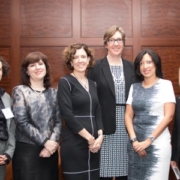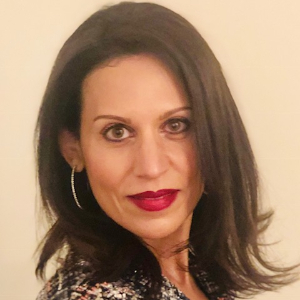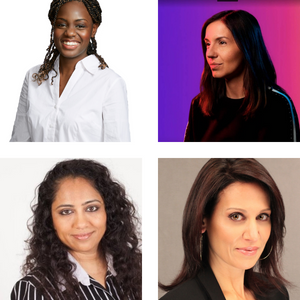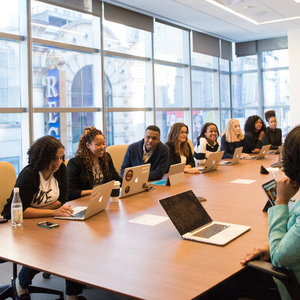Six Forms of Cultural Wealth You Can Leverage As a Leader
 In her model of community cultural wealth, Dr. Tara J. Yosso identified six forms of cultural wealth (aspirational, navigational, social, linguistic, familial and resistant capital) possessed and earned by socially marginalized groups, and countered the lens of cultural deficit.
In her model of community cultural wealth, Dr. Tara J. Yosso identified six forms of cultural wealth (aspirational, navigational, social, linguistic, familial and resistant capital) possessed and earned by socially marginalized groups, and countered the lens of cultural deficit.
Cultural wealth is defined as: “an array of knowledge, skills, strengths and experiences that are learned and shared by people of color and marginalized groups; the values and behaviors that are nurtured through culture work together to create a way of knowing and being.”
Affirming the cultural capital you’ve acquired as part of your road-tested skillset can be a compelling collective and personal narrative-flipper: factors that may have inhibited opportunities become empowering qualifications of your leadership ability. To walk into the room with a sense of cultural wealth integrated into your personal narrative could arguably reduce and reframe a sense of imposter syndrome.
In fact, Yosso’s model was initially designed to “capture the talents, strengths and experiences that students of color bring with them to their college environment”— but professional context, and even executive context, are even more compelling given you are further on the journey.
Here are the six forms of cultural capital and why they make you valuable as a leader.
Aspirational Capital
Aspirational capital is the ability to sustain hopes and dreams for the future amidst both real and perceived barriers.
As states the University of Portland UP Career Center, “It is the ability to envision a future beyond your current circumstances and work towards pursuing your dreams and aspirations.”
As Sheri Crosby Wheeler, VP of D&I at Fossil Group, told theglasshammer earlier this year when speaking to her own economically disadvantaged background: “I feel like it has given me the grit, the resilience, the fight, the get-up-and-go that I have to this day. I won’t see myself as ever being down and out, and I won’t stay in a ‘woe is me’ place, not for very long.”
The impact and success of Black and Latina female entrepreneurs, despite opportunity gaps, bias and barriers in the hallways of corporate America, bears testament to a mentality of sticking to a vision of realizing the dream beyond obstacles.
The ability to conceive of and hold to a vision beyond the current reality is not only essential to becoming a leader, but also what enables leaders to inspire entirely new visions and influence new realities.
Navigational Capital
Navigational capital is the ability to maneuver through systems and institutions that historically were not designed for you. Yosso notes that this capital empowers individuals to move within environments that can feel both unsupportive or hostile.
“I think you can approach a situation like that and feel like you’re the only one,” Gia Morón told us, on inviting herself into the NYC networking circle for the emerging legal cannabis industry, “or you can say, ‘I can invite other people and not be the only one.’”
As pointed out in Harvard Business Review by Marlette Jackson, PhD and Paria Rajai, the dedication many “first generation corporates” have to paying-it-forward and bringing others up through sharing the unspoken rules of navigating an organization is one way navigational capital comes into power. And for those who trail-blazed themselves, they bring that earned strategic and maverick gumption to what they offer.
“The most rewarding piece of my work is to create an opportunity and open a door, where traditionally that door may not have existed,” said Noelle Ramirez, Project Manager, DE&I at PGIM, about alternative recruiting channels, “to be able to put that spotlight on someone who might not have been seen and say, ‘I see you and there’s space for you here.’”
Social Capital
Social capital is leveraging existing community resources and connections in building a network in support of your goals.
The roles of social and cultural capital have been found to be key components in supporting academic achievement among Latinas. In one qualitative study of Latina women, the pursuit of higher education was truly conceived as a “family goal” in which sacrifices were made to realize the goal, and in turn the Latina women “considered their own educational advancements as advancements for the whole family.”
Recently, Monica Marquez, Co-Founder of Beyond Barriers, shared with us that years ago when pioneering a Returnship® program at Goldman Sachs that facilitated mothers back to work after their maternity leave, her team found Latina women were less likely to have opted out of work for home responsibilities than their white peers, because they had the strong family structure and childcare support within the family.
“The cultural nuance or norm of the tight-knit family, where it takes a village to raise a family, helped some women stay employed opposed to having to opt out,” said Marquez.
Linguistic Capital
Linguistic capital is the sum intellectual, social and communication skills attained through a particular language, history and experiences.
Linguistic research indicates that those who are bilingual or multilingual generally have more connectivity and integration in their neural networks, a sharper working memory, more cognitive reserve, better task-switching, more divergent thinking and are more adept at solving mathematical problems than monolinguals, for starters. Analyzing in a second language also reduces decision bias.
“I have the benefit of growing up in a different country and being exposed to different cultures, so that helps me to understand and work with cross-cultural teams,” Anna Thomas, VP at BBH, told us. “For example, in Asian culture, unless you actually reach out and ask, someone will often think it’s disrespectful to provide their view of things. I grew up in that culture, so I know and I can actually coax and ask someone to speak up. I can come from that angle.”
Yosso emphasized that cultures where oral storytelling is part of the daily cultural fabric bring “skills [that] may include memorization, attention to detail, dramatic pauses, comedic timing, facial affect, vocal tone, volume, rhythm and rhyme”, such as to narrative crafting and public speaking.
Familial Capital
Familial capital is the cultural knowledge and nuance obtained from family and community experiences, for example how the communal-orientation of many Latin cultures may predispose networking skills.
While crediting her parents for raising her in faith from a long line of ministers and pastors, Marie Carr, a Global Growth Strategist at PwC US, said: “I have confidence in and the ability to appeal to a force higher than myself. That’s helped me to be more patient, to put myself in other’s shoes, to not be so hard on myself. You have to be able to center yourself, because you’re often going to find yourself in an environment that’s not going to affirm you. So, the ability to affirm yourself is really useful.”
Familial legacy of challenge and strife can also compel compassionate leadership.
Megan Hogan, Chief Diversity Officer of Goldman Sachs, recently shared that her family’s journey from the Dominican Republic to find opportunity influenced her own pro bono passion of working with immigrants seeking asylum: “It’s always been important to me to advocate for people seeking refuge from persecution as a way to pay it forward and allow others to find those same opportunities.”
Resistant Capital
Resistant capital is the inherited foundation and historical legacy of communities of colors and marginalized groups in resisting inequality and pursuing equal rights. This includes embracing a resistance to stereotypes that are not authentic to your sense of self.
Overcoming barriers and challenging the status quo enables a leader-oriented lens of questioning conventional models and methods that aren’t working or may be problematic for long-term growth, according to the findings of HBR authors Jackson and Rajai.
“The narrative is often ‘I come from a low-income neighborhood, I was raised by a single parent, my father is in jail, my brother was killed, I didn’t go to an Ivy League school. I’ve got no credentials to lead…Who am I to run?” said May Nazareno, NE Director of Gifts at Ignite, to us, speaking of encouraging the inherent young female leaders from highly marginalized neighborhoods. “And we flip the script and say: who are you not to? We’re here to convince each young woman that her whole life is what makes her qualified to lead.”
By: Aimee Hansen









